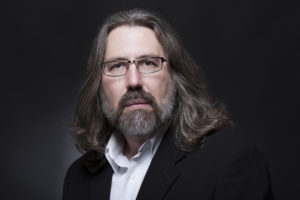 A Column That Is Absolutely Not About Critical Race Theory.
A Column That Is Absolutely Not About Critical Race Theory.
By Mark Williams, Ph.D.
Professor of Rhetoric, California State University, Sacramento
(from the regular Column: “Meaningful-Faith: Words, the Word, and a Life of Substance”)
Over the roughly ninety days of March, April, and May of this year, Fox News mentioned Critical Race Theory (CRT) 1,300 times.[1]
What you are reading is, blessedly, not a column on CRT or Intersectionality—two ideas hated by the Right at exactly the same pitch they assume God and America are hated by the Left.
Instead, this is a comment on how the public conversation around these ideas collapses at exactly the points we have been discussing in previous columns about the meaning of words. To begin, let’s take comments from Presidential Executive Order 13950 (EO13950), written in the closing days of the Trump administration (shortly before the election) and full of wording now being copied repeatedly in laws within eight states that ban the teaching of CRT, as well as in another eighteen states that have drafted, or are in the process of drafting, such bills and other legislation to be considered in the State Houses.[2]
EO13950 states that the “policy of the United States” will be “not to promote race or sex stereotyping or scapegoating,”[3] which at first blush sounds pretty solid to me. EO13950 then defines stereotyping and scapegoating as “ascribing character traits, values, moral and ethical codes, privileges, status, or beliefs to a race or sex, or to an individual because of his or her race or sex.” This is a bit dodgier, certainly, and that odd inclusion of the word “privileges” makes me cautious, but no reasonable person could suggest the wording itself has gone completely off the rails. This is debatable in a few points, but on the whole it still sounds fairly mainstream American.
We then come to the justification for this EO. This should be the policy of the United States because there is, EO13950 states, a “destructive ideology”[4] running through the land. This “malign ideology”[5] (That Which Is Not To Be Named) is presented in required “diversity trainings across the country.”[6] Examples (several of them admittedly rather odd) are then given from the Treasury Department, Argonne and Sandia National Labs, and some displays at the Smithsonian. Requiring such training would “promote divisiveness” and “distract from the pursuit of excellence,” the EO says.[7]
Enter, Kimberlé Crenshaw. Crenshaw is a powerful scholar, lawyer, professor, and social critic, and she happens to be the person who coined the phrase “intersectionality” as a legal concept some thirty years ago. She wrote a piece in the Washington Post in July which bemoans, quite accurately by my understanding, that by establishing “divisiveness” as a criterion for evaluation, the EO has created “a subjective condition that turns on any student’s (or parent’s) claim to feel resentment or guilt.”[8] We are left, no doubt, with the notion that this is a very bad idea, and no true criterion at all.
So, from a leading thinker of the Left, we have a clear statement that feelings should not be the guide to policy because feelings are subjective.
I agree. That is a strikingly conservative view of language, and as a—let’s coin a phrase—”linguistic conservative,” I applaud and agree with the professor. But if we take this stand, it requires us to give up a very specific view of language—a view that permeates much of contemporary discussions about race, gender, sex, sexual abuse, religion, justice, Trump, advertising, Game of Thrones, vegetarianism, morality, good, and—to be brief—everything else.
The view that must be given up and surrendered is the one that says our own subjective experiences (they’re called feelings) are how we should define, navigate, and negotiate the meaning we attach to all these ideas, to all these words.
But if Kimberlé Crenshaw and I are not going to construct the meaning of these words from our subjective experiences, how are we going to come to understand their meaning? How can she and I become not just allies in the fight to overturn and name literally centuries of horrible evil that is less than skin-deep in the culture of this country? How can we also join in the idea of finding real meaning that overcomes and reorders those meanings?
Perhaps we need a new way to think about what it means to mean. Or, perhaps, what we really need is to rediscover an old way to think about meaning. . . ?
More to follow.
Notes
[1] Rashawn Ray and Alexandra Gibbons, “Why Are States Banning Critical Race Theory?” July, 2021. Brookings Educational Resources. https://www.brookings.edu/blog/fixgov/2021/07/02/why-are-states-banning-critical-race-theory/
[2] Ray & Gibbons.
[3] “Combating Race and Sex Stereotyping: A Presidential Document by the Executive Office of the President on 09/28/2020,” EO13950, Sect. 1, para. 14.
[4] EO13950, Sect. 1, para. 4.
[5] EO13950, Sect. 1, para. 5.
[6] EO13950, Sect. 1, para. 5.
[7] EO13950, Sect. 1, para. 13.
[8] Kimberlé Crenshaw, “The panic over critical race theory is an attempt to whitewash U.S. history,” Washington Post, 2 July, 2021.
